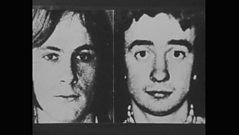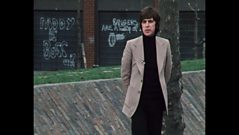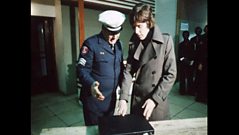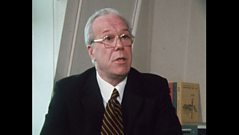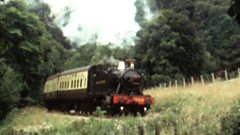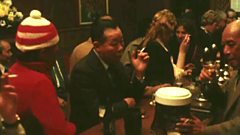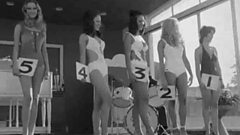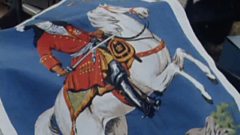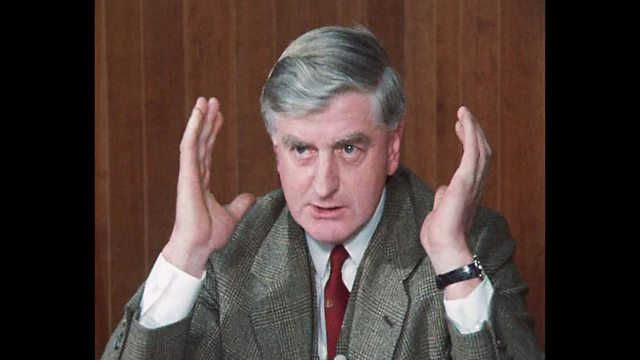
The continuing danger from PIRA bombs
Anti-terrorist experts, George Styles and Bob Huntley, advise John Stapleton on the likely continuation of Provisional Irish Republican Army (PIRA) bomb attacks on England.
Reporter John Stapleton concludes his report on the Provisional Irish Republican Army (PIRA) bombing campaign in England by hearing from two anti-terrorist experts.
Lieutenant Colonel George Styles (a former commander of the British Army’s Bomb Disposal Unit in Northern Ireland) gives advice on how people can try to avoid being injured by an explosion, “The first rule must be to get as much of anything between you and the bomb as possible, even if it’s only air”. Lieutenant Colonel Styles also advises people to lie flat on the ground and to cover their eardrums with their hands.
Bob Huntley, former Commander of the Bomb Squad, acknowledges that there will always be new terrorists to replace those who have been captured, “Until there is some other solution to this matter I’m afraid that – I don’t want to be too pessimistic – but we’re going to have to live with the probability of bombing for some time to come.”
The report ends with black and white stills of bomb victims.
CONTEXT
England became a republican bomb target after Bloody Sunday when members of the parachute regiment shot dead 13 people in Londonderry on 30 January 1972.
On 22 February 1972 the Official IRA planted a bomb at the Aldershot headquarters of the Parachute Regiment; the regiment’s soldiers had been responsible for the Bloody Sunday killings. The bomb killed seven - a gardener, the regiment's Roman Catholic padre and five women in the kitchens.
A year later the Provisional Irish Republican Army, now eclipsing the Official IRA, sent its first unit to London.
The first, and still one of the most infamous operations, involved sisters Dolores and Marion Price; the Price sisters and nine accomplices placed four car bombs in London on 8 March 1973.
Ten of the team were apprehended as they attempted to leave Heathrow and two bombs were defused. However, the remaining two bombs, one of which was outside the Old Bailey, exploded; one man was killed and some 180 other people were injured.
M62 bombing: undeterred by the jailing of the Price sisters and others, the PIRA continued its campaign.
One of the most horrific bombings came in February 1974 when an IRA unit planted a bomb on a coach carrying servicemen and their families, killing 11 people.
The bombing led to a controversial miscarriage of justice when Judith Ward, a woman with a history of mental illness, was jailed for that attack and others.
Later that same year, an IRA unit planted bombs in two pubs in Guildford, Surrey. The explosions killed one civilian, two Scots Guards and two members of the Women’s Royal Army Corps. A further sixty-five persons were wounded.
Birmingham pub bombing: in November 1974, the IRA carried out one of its most devastating attacks when 21 people were killed in another pub bombing in Birmingham.
As the public demand for justice put the police under pressure to get results, 10 people were arrested and jailed for both this latest incident and Guildford.
However, after long campaigns, the Guildford Four and the Birmingham Six were released in 1989 and 1991 respectively; the Court of Appeal having found that they had been wrongly convicted.
Balcombe Street Gang: following the collapse of the PIRA's 1974-1975 ceasefire, a fresh campaign began, led by a four-man team who became known as the Balcombe Street Gang.
Martin O'Connell, Edward Butler, Harry Duggan and Hugh Doherty carried out a wave of bombings - detonating their first ten devices in just five days.
The gang also killed Ross McWhirter, the co-editor of the Guinness Book of Records, after he had offered £50,000 for information leading to the arrest of the team.
However, after a botched attack on a Mayfair restaurant, the four men took local residents hostage (in an apartment on Balcombe Street in London) and began a tense stand-off with the police.
Duration:
This clip is from
More clips from 02/04/1976
-
![]()
Paul Hill and Gerry Conlon
Duration: 03:22
-
![]()
Alleged bomb factory
Duration: 02:25
-
![]()
Bombing of the 1976 Ideal Home Exhibition
Duration: 03:38
-
![]()
Terrorists in London
Duration: 02:13
More clips from Nationwide
-
![]()
A Passion for Steam Trains—23/09/1975
Duration: 10:35
-
![]()
Eddie Braben on Liverpool—10/09/1979
Duration: 13:44
-
![]()
Southend Holiday—24/08/1973
Duration: 10:25
-
![]()
Scarva—10/07/1981
Duration: 08:28

